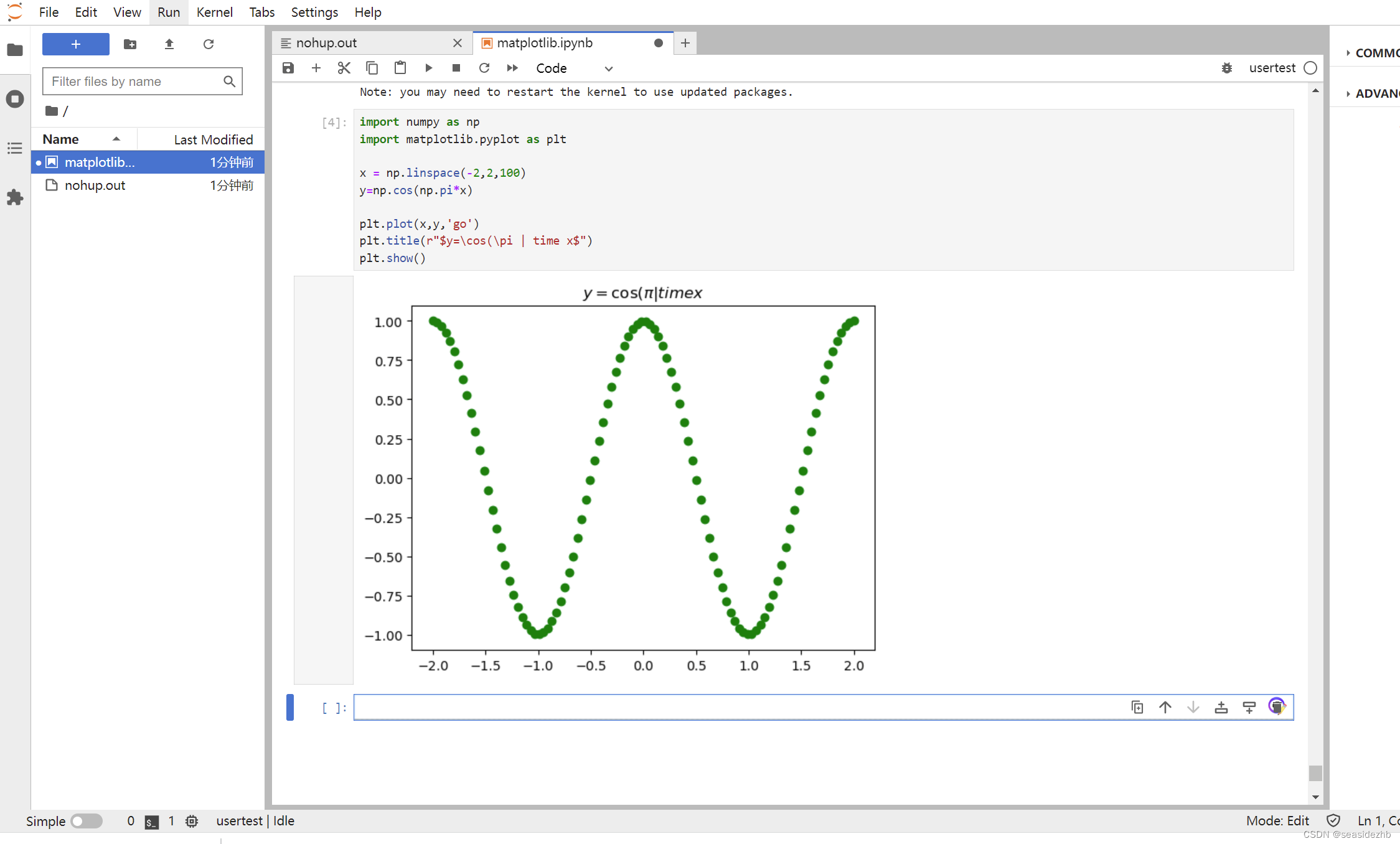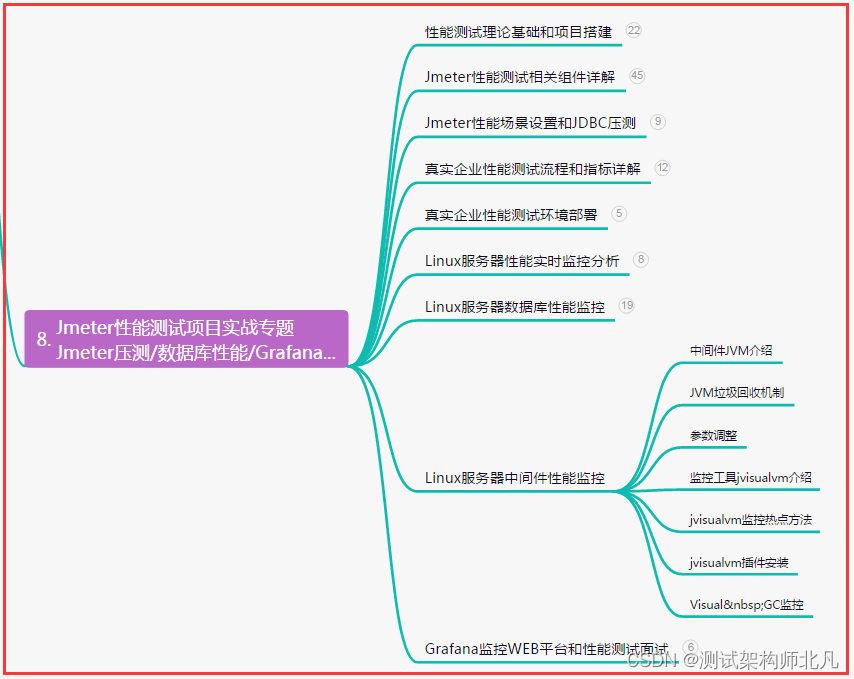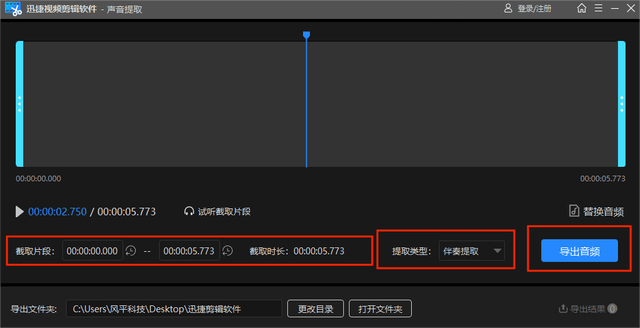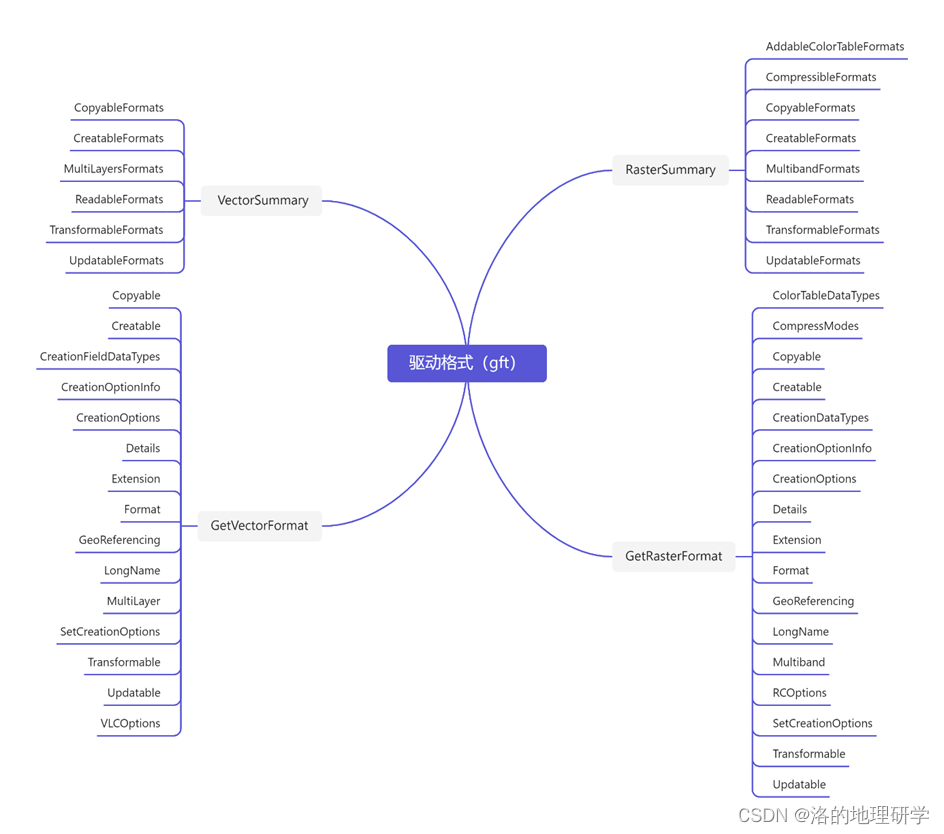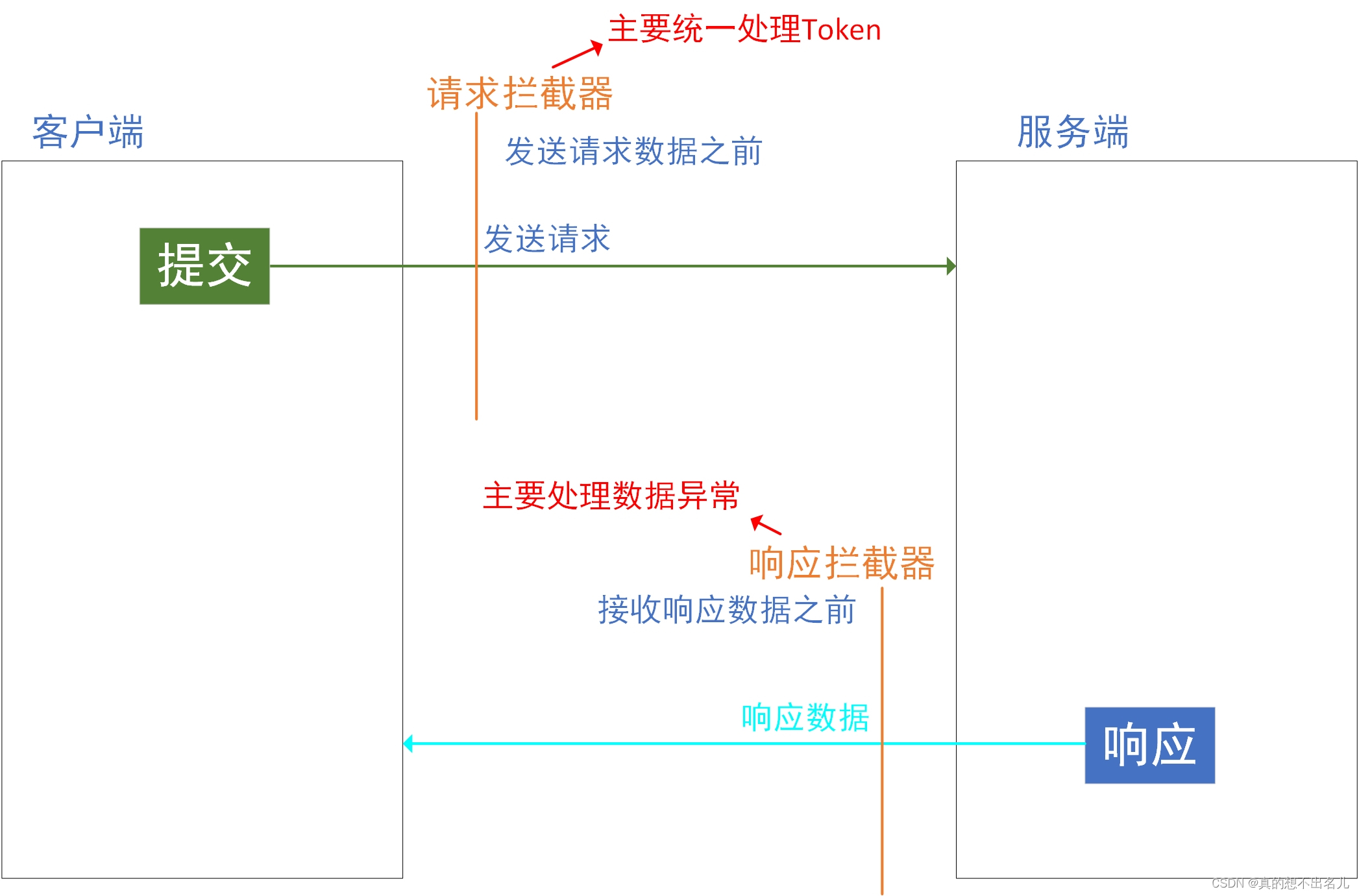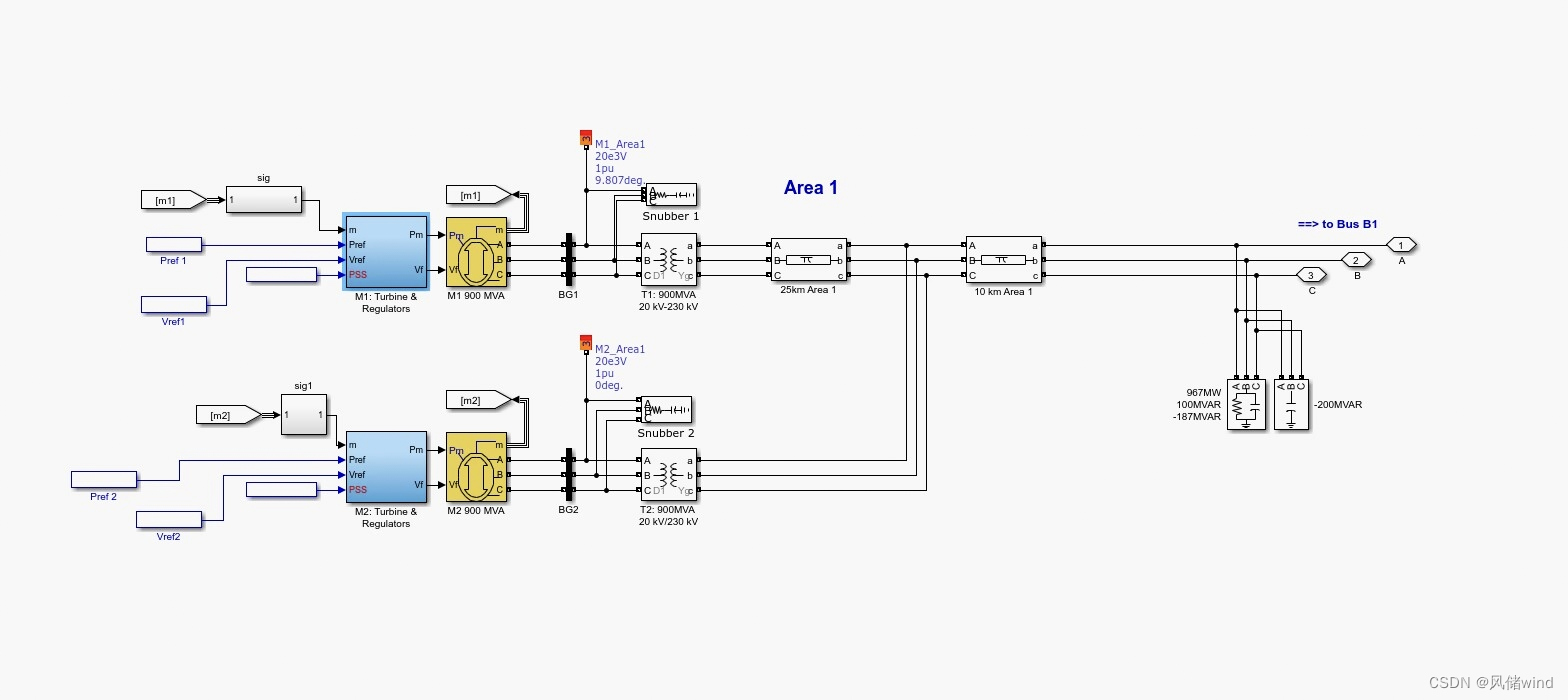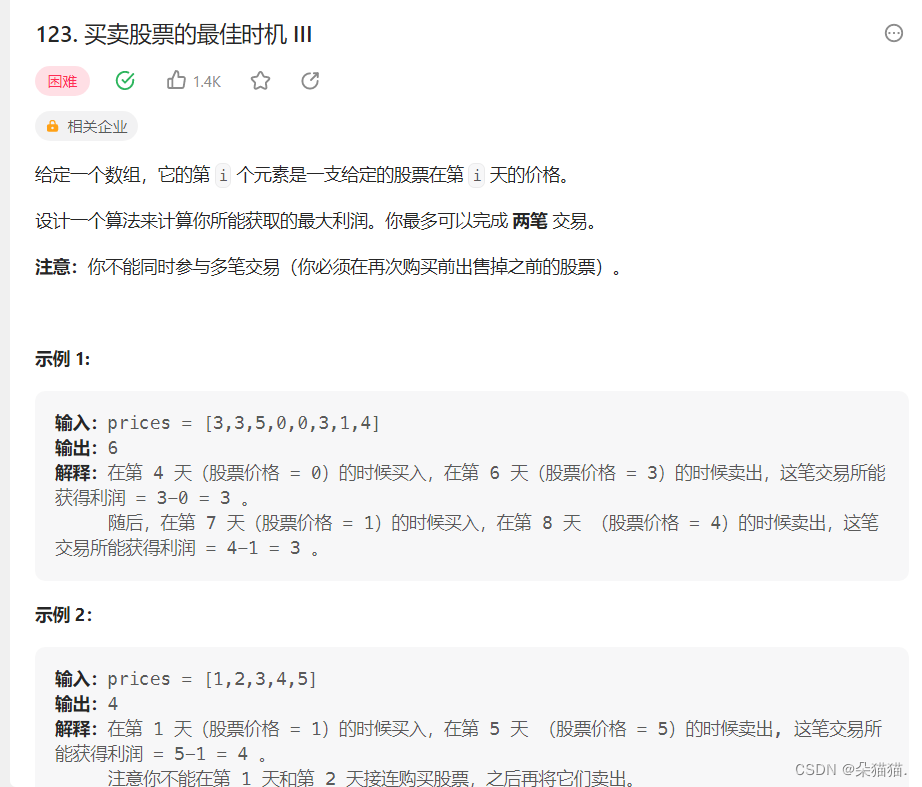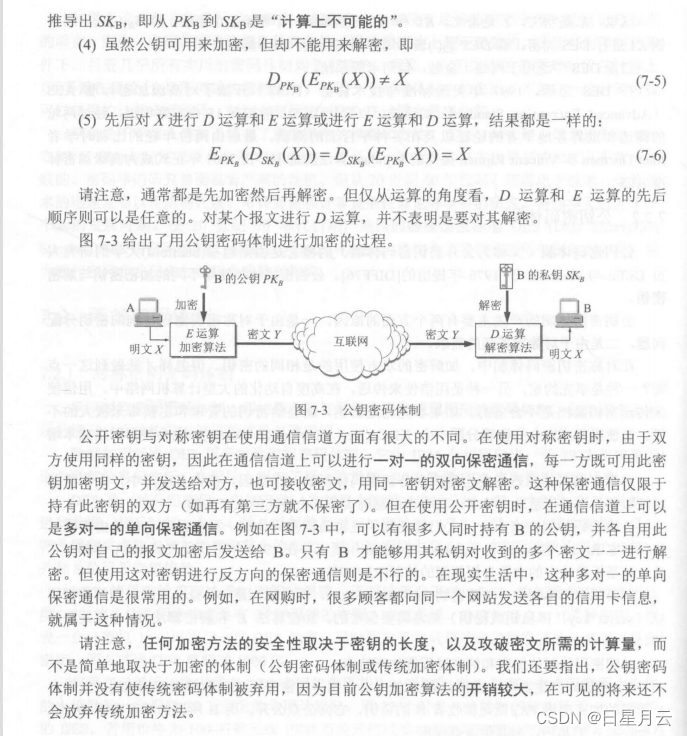tf.contrib.training.HParams在tensorflow2.0版本以上失效的解决_我也想学习的博客-CSDN博客
1.
# Copyright 2016 The TensorFlow Authors. All Rights Reserved.
#
# Licensed under the Apache License, Version 2.0 (the "License");
# you may not use this file except in compliance with the License.
# You may obtain a copy of the License at
#
# http://www.apache.org/licenses/LICENSE-2.0
#
# Unless required by applicable law or agreed to in writing, software
# distributed under the License is distributed on an "AS IS" BASIS,
# WITHOUT WARRANTIES OR CONDITIONS OF ANY KIND, either express or implied.
# See the License for the specific language governing permissions and
# limitations under the License.
# ==============================================================================
"""Hyperparameter values."""
from __future__ import absolute_import
from __future__ import division
from __future__ import print_function
import json
import numbers
import re
import six
## from tensorflow.contrib.training.python.training import hparam_pb2
## from tensorflow.python.framework import ops
## from tensorflow.python.util import compat
## from tensorflow.python.util import deprecation
# Define the regular expression for parsing a single clause of the input
# (delimited by commas). A legal clause looks like:
# <variable name>[<index>]? = <rhs>
# where <rhs> is either a single token or [] enclosed list of tokens.
# For example: "var[1] = a" or "x = [1,2,3]"
PARAM_RE = re.compile(r"""
(?P<name>[a-zA-Z][\w\.]*) # variable name: "var" or "x"
(\[\s*(?P<index>\d+)\s*\])? # (optional) index: "1" or None
\s*=\s*
((?P<val>[^,\[]*) # single value: "a" or None
|
\[(?P<vals>[^\]]*)\]) # list of values: None or "1,2,3"
($|,\s*)""", re.VERBOSE)
def _parse_fail(name, var_type, value, values):
"""Helper function for raising a value error for bad assignment."""
raise ValueError(
'Could not parse hparam \'%s\' of type \'%s\' with value \'%s\' in %s' %
(name, var_type.__name__, value, values))
def _reuse_fail(name, values):
"""Helper function for raising a value error for reuse of name."""
raise ValueError('Multiple assignments to variable \'%s\' in %s' % (name,
values))
def _process_scalar_value(name, parse_fn, var_type, m_dict, values,
results_dictionary):
"""Update results_dictionary with a scalar value.
Used to update the results_dictionary to be returned by parse_values when
encountering a clause with a scalar RHS (e.g. "s=5" or "arr[0]=5".)
Mutates results_dictionary.
Args:
name: Name of variable in assignment ("s" or "arr").
parse_fn: Function for parsing the actual value.
var_type: Type of named variable.
m_dict: Dictionary constructed from regex parsing.
m_dict['val']: RHS value (scalar)
m_dict['index']: List index value (or None)
values: Full expression being parsed
results_dictionary: The dictionary being updated for return by the parsing
function.
Raises:
ValueError: If the name has already been used.
"""
try:
parsed_value = parse_fn(m_dict['val'])
except ValueError:
_parse_fail(name, var_type, m_dict['val'], values)
# If no index is provided
if not m_dict['index']:
if name in results_dictionary:
_reuse_fail(name, values)
results_dictionary[name] = parsed_value
else:
if name in results_dictionary:
# The name has already been used as a scalar, then it
# will be in this dictionary and map to a non-dictionary.
if not isinstance(results_dictionary.get(name), dict):
_reuse_fail(name, values)
else:
results_dictionary[name] = {}
index = int(m_dict['index'])
# Make sure the index position hasn't already been assigned a value.
if index in results_dictionary[name]:
_reuse_fail('{}[{}]'.format(name, index), values)
results_dictionary[name][index] = parsed_value
def _process_list_value(name, parse_fn, var_type, m_dict, values,
results_dictionary):
"""Update results_dictionary from a list of values.
Used to update results_dictionary to be returned by parse_values when
encountering a clause with a list RHS (e.g. "arr=[1,2,3]".)
Mutates results_dictionary.
Args:
name: Name of variable in assignment ("arr").
parse_fn: Function for parsing individual values.
var_type: Type of named variable.
m_dict: Dictionary constructed from regex parsing.
m_dict['val']: RHS value (scalar)
values: Full expression being parsed
results_dictionary: The dictionary being updated for return by the parsing
function.
Raises:
ValueError: If the name has an index or the values cannot be parsed.
"""
if m_dict['index'] is not None:
raise ValueError('Assignment of a list to a list index.')
elements = filter(None, re.split('[ ,]', m_dict['vals']))
# Make sure the name hasn't already been assigned a value
if name in results_dictionary:
raise _reuse_fail(name, values)
try:
results_dictionary[name] = [parse_fn(e) for e in elements]
except ValueError:
_parse_fail(name, var_type, m_dict['vals'], values)
def _cast_to_type_if_compatible(name, param_type, value):
"""Cast hparam to the provided type, if compatible.
Args:
name: Name of the hparam to be cast.
param_type: The type of the hparam.
value: The value to be cast, if compatible.
Returns:
The result of casting `value` to `param_type`.
Raises:
ValueError: If the type of `value` is not compatible with param_type.
* If `param_type` is a string type, but `value` is not.
* If `param_type` is a boolean, but `value` is not, or vice versa.
* If `param_type` is an integer type, but `value` is not.
* If `param_type` is a float type, but `value` is not a numeric type.
"""
fail_msg = (
"Could not cast hparam '%s' of type '%s' from value %r" %
(name, param_type, value))
# Some callers use None, for which we can't do any casting/checking. :(
if issubclass(param_type, type(None)):
return value
# Avoid converting a non-string type to a string.
if (issubclass(param_type, (six.string_types, six.binary_type)) and
not isinstance(value, (six.string_types, six.binary_type))):
raise ValueError(fail_msg)
# Avoid converting a number or string type to a boolean or vice versa.
if issubclass(param_type, bool) != isinstance(value, bool):
raise ValueError(fail_msg)
# Avoid converting float to an integer (the reverse is fine).
if (issubclass(param_type, numbers.Integral) and
not isinstance(value, numbers.Integral)):
raise ValueError(fail_msg)
# Avoid converting a non-numeric type to a numeric type.
if (issubclass(param_type, numbers.Number) and
not isinstance(value, numbers.Number)):
raise ValueError(fail_msg)
return param_type(value)
def parse_values(values, type_map):
"""Parses hyperparameter values from a string into a python map.
`values` is a string containing comma-separated `name=value` pairs.
For each pair, the value of the hyperparameter named `name` is set to
`value`.
If a hyperparameter name appears multiple times in `values`, a ValueError
is raised (e.g. 'a=1,a=2', 'a[1]=1,a[1]=2').
If a hyperparameter name in both an index assignment and scalar assignment,
a ValueError is raised. (e.g. 'a=[1,2,3],a[0] = 1').
The hyperparameter name may contain '.' symbols, which will result in an
attribute name that is only accessible through the getattr and setattr
functions. (And must be first explicit added through add_hparam.)
WARNING: Use of '.' in your variable names is allowed, but is not well
supported and not recommended.
The `value` in `name=value` must follows the syntax according to the
type of the parameter:
* Scalar integer: A Python-parsable integer point value. E.g.: 1,
100, -12.
* Scalar float: A Python-parsable floating point value. E.g.: 1.0,
-.54e89.
* Boolean: Either true or false.
* Scalar string: A non-empty sequence of characters, excluding comma,
spaces, and square brackets. E.g.: foo, bar_1.
* List: A comma separated list of scalar values of the parameter type
enclosed in square brackets. E.g.: [1,2,3], [1.0,1e-12], [high,low].
When index assignment is used, the corresponding type_map key should be the
list name. E.g. for "arr[1]=0" the type_map must have the key "arr" (not
"arr[1]").
Args:
values: String. Comma separated list of `name=value` pairs where
'value' must follow the syntax described above.
type_map: A dictionary mapping hyperparameter names to types. Note every
parameter name in values must be a key in type_map. The values must
conform to the types indicated, where a value V is said to conform to a
type T if either V has type T, or V is a list of elements of type T.
Hence, for a multidimensional parameter 'x' taking float values,
'x=[0.1,0.2]' will parse successfully if type_map['x'] = float.
Returns:
A python map mapping each name to either:
* A scalar value.
* A list of scalar values.
* A dictionary mapping index numbers to scalar values.
(e.g. "x=5,L=[1,2],arr[1]=3" results in {'x':5,'L':[1,2],'arr':{1:3}}")
Raises:
ValueError: If there is a problem with input.
* If `values` cannot be parsed.
* If a list is assigned to a list index (e.g. 'a[1] = [1,2,3]').
* If the same rvalue is assigned two different values (e.g. 'a=1,a=2',
'a[1]=1,a[1]=2', or 'a=1,a=[1]')
"""
results_dictionary = {}
pos = 0
while pos < len(values):
m = PARAM_RE.match(values, pos)
if not m:
raise ValueError('Malformed hyperparameter value: %s' % values[pos:])
# Check that there is a comma between parameters and move past it.
pos = m.end()
# Parse the values.
m_dict = m.groupdict()
name = m_dict['name']
if name not in type_map:
raise ValueError('Unknown hyperparameter type for %s' % name)
type_ = type_map[name]
# Set up correct parsing function (depending on whether type_ is a bool)
if type_ == bool:
def parse_bool(value):
if value in ['true', 'True']:
return True
elif value in ['false', 'False']:
return False
else:
try:
return bool(int(value))
except ValueError:
_parse_fail(name, type_, value, values)
parse = parse_bool
else:
parse = type_
# If a singe value is provided
if m_dict['val'] is not None:
_process_scalar_value(name, parse, type_, m_dict, values,
results_dictionary)
# If the assigned value is a list:
elif m_dict['vals'] is not None:
_process_list_value(name, parse, type_, m_dict, values,
results_dictionary)
else: # Not assigned a list or value
_parse_fail(name, type_, '', values)
return results_dictionary
class HParams(object):
"""Class to hold a set of hyperparameters as name-value pairs.
A `HParams` object holds hyperparameters used to build and train a model,
such as the number of hidden units in a neural net layer or the learning rate
to use when training.
You first create a `HParams` object by specifying the names and values of the
hyperparameters.
To make them easily accessible the parameter names are added as direct
attributes of the class. A typical usage is as follows:
```python
# Create a HParams object specifying names and values of the model
# hyperparameters:
hparams = HParams(learning_rate=0.1, num_hidden_units=100)
# The hyperparameter are available as attributes of the HParams object:
hparams.learning_rate ==> 0.1
hparams.num_hidden_units ==> 100
```
Hyperparameters have type, which is inferred from the type of their value
passed at construction type. The currently supported types are: integer,
float, boolean, string, and list of integer, float, boolean, or string.
You can override hyperparameter values by calling the
[`parse()`](#HParams.parse) method, passing a string of comma separated
`name=value` pairs. This is intended to make it possible to override
any hyperparameter values from a single command-line flag to which
the user passes 'hyper-param=value' pairs. It avoids having to define
one flag for each hyperparameter.
The syntax expected for each value depends on the type of the parameter.
See `parse()` for a description of the syntax.
Example:
```python
# Define a command line flag to pass name=value pairs.
# For example using argparse:
import argparse
parser = argparse.ArgumentParser(description='Train my model.')
parser.add_argument('--hparams', type=str,
help='Comma separated list of "name=value" pairs.')
args = parser.parse_args()
...
def my_program():
# Create a HParams object specifying the names and values of the
# model hyperparameters:
hparams = tf.HParams(learning_rate=0.1, num_hidden_units=100,
activations=['relu', 'tanh'])
# Override hyperparameters values by parsing the command line
hparams.parse(args.hparams)
# If the user passed `--hparams=learning_rate=0.3` on the command line
# then 'hparams' has the following attributes:
hparams.learning_rate ==> 0.3
hparams.num_hidden_units ==> 100
hparams.activations ==> ['relu', 'tanh']
# If the hyperparameters are in json format use parse_json:
hparams.parse_json('{"learning_rate": 0.3, "activations": "relu"}')
```
"""
_HAS_DYNAMIC_ATTRIBUTES = True # Required for pytype checks.
def __init__(self, hparam_def=None, model_structure=None, **kwargs):
"""Create an instance of `HParams` from keyword arguments.
The keyword arguments specify name-values pairs for the hyperparameters.
The parameter types are inferred from the type of the values passed.
The parameter names are added as attributes of `HParams` object, so they
can be accessed directly with the dot notation `hparams._name_`.
Example:
```python
# Define 3 hyperparameters: 'learning_rate' is a float parameter,
# 'num_hidden_units' an integer parameter, and 'activation' a string
# parameter.
hparams = tf.HParams(
learning_rate=0.1, num_hidden_units=100, activation='relu')
hparams.activation ==> 'relu'
```
Note that a few names are reserved and cannot be used as hyperparameter
names. If you use one of the reserved name the constructor raises a
`ValueError`.
Args:
hparam_def: Serialized hyperparameters, encoded as a hparam_pb2.HParamDef
protocol buffer. If provided, this object is initialized by
deserializing hparam_def. Otherwise **kwargs is used.
model_structure: An instance of ModelStructure, defining the feature
crosses to be used in the Trial.
**kwargs: Key-value pairs where the key is the hyperparameter name and
the value is the value for the parameter.
Raises:
ValueError: If both `hparam_def` and initialization values are provided,
or if one of the arguments is invalid.
"""
# Register the hyperparameters and their type in _hparam_types.
# This simplifies the implementation of parse().
# _hparam_types maps the parameter name to a tuple (type, bool).
# The type value is the type of the parameter for scalar hyperparameters,
# or the type of the list elements for multidimensional hyperparameters.
# The bool value is True if the value is a list, False otherwise.
self._hparam_types = {}
self._model_structure = model_structure
if hparam_def:
## self._init_from_proto(hparam_def)
## if kwargs:
## raise ValueError('hparam_def and initialization values are '
## 'mutually exclusive')
raise ValueError('hparam_def has been disabled in this version')
else:
for name, value in six.iteritems(kwargs):
self.add_hparam(name, value)
## def _init_from_proto(self, hparam_def):
## """Creates a new HParams from `HParamDef` protocol buffer.
##
## Args:
## hparam_def: `HParamDef` protocol buffer.
## """
## assert isinstance(hparam_def, hparam_pb2.HParamDef)
## for name, value in hparam_def.hparam.items():
## kind = value.WhichOneof('kind')
## if kind.endswith('_value'):
## # Single value.
## if kind.startswith('int64'):
## # Setting attribute value to be 'int' to ensure the type is compatible
## # with both Python2 and Python3.
## self.add_hparam(name, int(getattr(value, kind)))
## elif kind.startswith('bytes'):
## # Setting attribute value to be 'str' to ensure the type is compatible
## # with both Python2 and Python3. UTF-8 encoding is assumed.
## self.add_hparam(name, compat.as_str(getattr(value, kind)))
## else:
## self.add_hparam(name, getattr(value, kind))
## else:
## # List of values.
## if kind.startswith('int64'):
## # Setting attribute value to be 'int' to ensure the type is compatible
## # with both Python2 and Python3.
## self.add_hparam(name, [int(v) for v in getattr(value, kind).value])
## elif kind.startswith('bytes'):
## # Setting attribute value to be 'str' to ensure the type is compatible
## # with both Python2 and Python3. UTF-8 encoding is assumed.
## self.add_hparam(
## name, [compat.as_str(v) for v in getattr(value, kind).value])
## else:
## self.add_hparam(name, [v for v in getattr(value, kind).value])
def add_hparam(self, name, value):
"""Adds {name, value} pair to hyperparameters.
Args:
name: Name of the hyperparameter.
value: Value of the hyperparameter. Can be one of the following types:
int, float, string, int list, float list, or string list.
Raises:
ValueError: if one of the arguments is invalid.
"""
# Keys in kwargs are unique, but 'name' could the name of a pre-existing
# attribute of this object. In that case we refuse to use it as a
# hyperparameter name.
if getattr(self, name, None) is not None:
raise ValueError('Hyperparameter name is reserved: %s' % name)
if isinstance(value, (list, tuple)):
if not value:
raise ValueError(
'Multi-valued hyperparameters cannot be empty: %s' % name)
self._hparam_types[name] = (type(value[0]), True)
else:
self._hparam_types[name] = (type(value), False)
setattr(self, name, value)
def set_hparam(self, name, value):
"""Set the value of an existing hyperparameter.
This function verifies that the type of the value matches the type of the
existing hyperparameter.
Args:
name: Name of the hyperparameter.
value: New value of the hyperparameter.
Raises:
ValueError: If there is a type mismatch.
"""
param_type, is_list = self._hparam_types[name]
if isinstance(value, list):
if not is_list:
raise ValueError(
'Must not pass a list for single-valued parameter: %s' % name)
setattr(self, name, [
_cast_to_type_if_compatible(name, param_type, v) for v in value])
else:
if is_list:
raise ValueError(
'Must pass a list for multi-valued parameter: %s.' % name)
setattr(self, name, _cast_to_type_if_compatible(name, param_type, value))
def del_hparam(self, name):
"""Removes the hyperparameter with key 'name'.
Args:
name: Name of the hyperparameter.
"""
if hasattr(self, name):
delattr(self, name)
del self._hparam_types[name]
def parse(self, values):
"""Override hyperparameter values, parsing new values from a string.
See parse_values for more detail on the allowed format for values.
Args:
values: String. Comma separated list of `name=value` pairs where
'value' must follow the syntax described above.
Returns:
The `HParams` instance.
Raises:
ValueError: If `values` cannot be parsed.
"""
type_map = dict()
for name, t in self._hparam_types.items():
param_type, _ = t
type_map[name] = param_type
values_map = parse_values(values, type_map)
return self.override_from_dict(values_map)
def override_from_dict(self, values_dict):
"""Override hyperparameter values, parsing new values from a dictionary.
Args:
values_dict: Dictionary of name:value pairs.
Returns:
The `HParams` instance.
Raises:
ValueError: If `values_dict` cannot be parsed.
"""
for name, value in values_dict.items():
self.set_hparam(name, value)
return self
## @deprecation.deprecated(None, 'Use `override_from_dict`.')
def set_from_map(self, values_map):
"""DEPRECATED. Use override_from_dict."""
return self.override_from_dict(values_dict=values_map)
def set_model_structure(self, model_structure):
self._model_structure = model_structure
def get_model_structure(self):
return self._model_structure
def to_json(self, indent=None, separators=None, sort_keys=False):
"""Serializes the hyperparameters into JSON.
Args:
indent: If a non-negative integer, JSON array elements and object members
will be pretty-printed with that indent level. An indent level of 0, or
negative, will only insert newlines. `None` (the default) selects the
most compact representation.
separators: Optional `(item_separator, key_separator)` tuple. Default is
`(', ', ': ')`.
sort_keys: If `True`, the output dictionaries will be sorted by key.
Returns:
A JSON string.
"""
return json.dumps(
self.values(),
indent=indent,
separators=separators,
sort_keys=sort_keys)
def parse_json(self, values_json):
"""Override hyperparameter values, parsing new values from a json object.
Args:
values_json: String containing a json object of name:value pairs.
Returns:
The `HParams` instance.
Raises:
ValueError: If `values_json` cannot be parsed.
"""
values_map = json.loads(values_json)
return self.override_from_dict(values_map)
def values(self):
"""Return the hyperparameter values as a Python dictionary.
Returns:
A dictionary with hyperparameter names as keys. The values are the
hyperparameter values.
"""
return {n: getattr(self, n) for n in self._hparam_types.keys()}
def get(self, key, default=None):
"""Returns the value of `key` if it exists, else `default`."""
if key in self._hparam_types:
# Ensure that default is compatible with the parameter type.
if default is not None:
param_type, is_param_list = self._hparam_types[key]
type_str = 'list<%s>' % param_type if is_param_list else str(param_type)
fail_msg = ("Hparam '%s' of type '%s' is incompatible with "
'default=%s' % (key, type_str, default))
is_default_list = isinstance(default, list)
if is_param_list != is_default_list:
raise ValueError(fail_msg)
try:
if is_default_list:
for value in default:
_cast_to_type_if_compatible(key, param_type, value)
else:
_cast_to_type_if_compatible(key, param_type, default)
except ValueError as e:
raise ValueError('%s. %s' % (fail_msg, e))
return getattr(self, key)
return default
def __contains__(self, key):
return key in self._hparam_types
def __str__(self):
return str(sorted(self.values().items()))
def __repr__(self):
return '%s(%s)' % (type(self).__name__, self.__str__())
@staticmethod
def _get_kind_name(param_type, is_list):
"""Returns the field name given parameter type and is_list.
Args:
param_type: Data type of the hparam.
is_list: Whether this is a list.
Returns:
A string representation of the field name.
Raises:
ValueError: If parameter type is not recognized.
"""
if issubclass(param_type, bool):
# This check must happen before issubclass(param_type, six.integer_types),
# since Python considers bool to be a subclass of int.
typename = 'bool'
elif issubclass(param_type, six.integer_types):
# Setting 'int' and 'long' types to be 'int64' to ensure the type is
# compatible with both Python2 and Python3.
typename = 'int64'
elif issubclass(param_type, (six.string_types, six.binary_type)):
# Setting 'string' and 'bytes' types to be 'bytes' to ensure the type is
# compatible with both Python2 and Python3.
typename = 'bytes'
elif issubclass(param_type, float):
typename = 'float'
else:
raise ValueError('Unsupported parameter type: %s' % str(param_type))
suffix = 'list' if is_list else 'value'
return '_'.join([typename, suffix])
## def to_proto(self, export_scope=None): # pylint: disable=unused-argument
## """Converts a `HParams` object to a `HParamDef` protocol buffer.
##
## Args:
## export_scope: Optional `string`. Name scope to remove.
##
## Returns:
## A `HParamDef` protocol buffer.
## """
## hparam_proto = hparam_pb2.HParamDef()
## for name in self._hparam_types:
## # Parse the values.
## param_type, is_list = self._hparam_types.get(name, (None, None))
## kind = HParams._get_kind_name(param_type, is_list)
##
## if is_list:
## if kind.startswith('bytes'):
## v_list = [compat.as_bytes(v) for v in getattr(self, name)]
## else:
## v_list = [v for v in getattr(self, name)]
## getattr(hparam_proto.hparam[name], kind).value.extend(v_list)
## else:
## v = getattr(self, name)
## if kind.startswith('bytes'):
## v = compat.as_bytes(getattr(self, name))
## setattr(hparam_proto.hparam[name], kind, v)
##
## return hparam_proto
## @staticmethod
## def from_proto(hparam_def, import_scope=None): # pylint: disable=unused-argument
## return HParams(hparam_def=hparam_def)
## ops.register_proto_function(
## 'hparams',
## proto_type=hparam_pb2.HParamDef,
## to_proto=HParams.to_proto,
## from_proto=HParams.from_proto)
